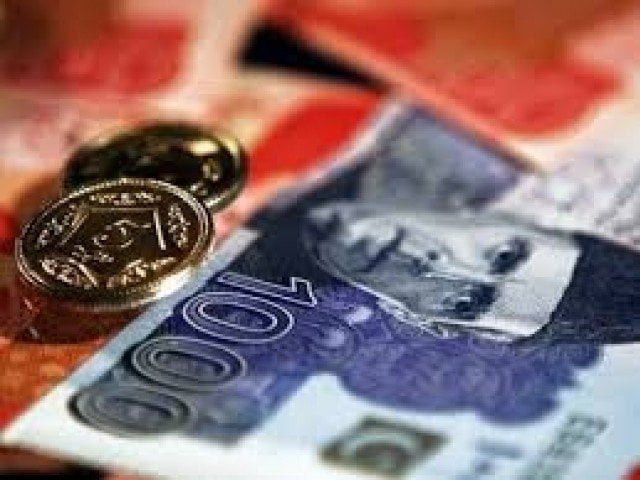Tight monetary, fiscal policies add to public debt: EAC member
Dr Ashfaque Hasan distances himself from govt’s fiscal and monetary adjustments

Dr Ashfaque Hasan distances himself from govt’s fiscal and monetary adjustments.
PHOTO: FILE
“The tight monetary, fiscal and exchange rate policies are piling up public debt and impeding economic growth,” remarked EAC member Dr Ashfaque Hasan Khan.
He was speaking at the 34th annual general meeting and conference of the Pakistan Society of Development Economists (PSDE). Once again, he advocated against going for an International Monetary Fund (IMF) bailout and underscored that “we must learn to live without the IMF”.
The tight monetary and fiscal policies and flexible exchange rate instruments, being utilised in accordance with the IMF programme, had aggravated Pakistan’s fiscal problems, added the EAC member.
“The hike in interest rate has discouraged private investment,” he lamented. “It has also enhanced the cost of debt servicing.”
Khan pointed out that the central bank’s decision to raise interest rate from 8.5% to 10% added 0.75% of gross domestic product (GDP) to the budget deficit. “Currency depreciation causes a sharp rise in external debt,” he added.
He was of the view that after the 1990s, Pakistan had experienced another ‘lost decade’ from 2008 to 2018. “During the two lost decades, Pakistan added $72.4 billion to external debt and liabilities, which was equal to three-fourth of the total debt,” he said. “This was the time when Pakistan was involved in the IMF programme.”
Fiscal, monetary policies in line with required economic reforms: Asad Umar
Giving the breakdown, he said $17.4 billion was added from 1990-2000 and another $55 billion from 2008-2018. Irrespective of the political government and set of economic policies, Pakistan’s GDP per capita, by every perspective, had been deteriorating over the past 25 years, said Quaid-e-Azam University Professor of Economics Dr Aatzaz Ahmad.
The EAC member argued that the tight fiscal policy was detrimental to public-sector spending, which would impact this year’s economic growth.
The Pakistan Tehreek-e-Insaf (PTI) government has continued to take measures like increase in interest rate and depreciation of the rupee, which many see as a preparation for the IMF programme.
As expected, SBP raises key interest rate by 100bps to 8.5%
In the aftermath of the government’s decision to request the IMF for a bailout package, a debate emerged over the new exchange rate policy. The IMF recommended a totally free exchange rate regime while the central bank came up with a flexible exchange rate policy.
“There is only one major weakness in exchange rate management and it is the fear of free float,” said SBP’s former acting governor Riaz Riazuddin who was removed by former finance minister Ishaq Dar after he let the currency depreciate in July 2017 without Dar’s consent.
Riazuddin underlined that other weaknesses stemmed from that fear and made economic managers hesitant in making timely adjustments.
The former central banker highlighted that a related weakness was that the Monetary Policy Committee (MPC) of the SBP was not supervising exchange rate management. He was of the view that the MPC was reluctant to bear that responsibility owing to weaknesses in the powers and functions granted to it under the SBP Act of 1956.
He advocated a minimum 6% annual depreciation of the rupee against the US dollar to keep exports competitive. However, Riazuddin did not mention the lack of exportable surplus which was the key reason behind stagnant exports despite a steep devaluation of the rupee.
“Keeping the exchange rate fixed leads to uncontrolled devaluations,” he remarked. “Macroeconomic policies are not helping generate sufficient foreign exchange resources in the economy.”
The former central banker shared the view that borrowed reserves temporarily increased the export-import and base money ratio, but they could not ensure sustainability. Taking a likely extreme position on currency depreciation, Riazuddin advocated currency weakness due to “rise in remittances”.
The growth in remittances tended to make exports uncompetitive by exerting appreciating pressure on the rupee, the ex-central banker said.
“The exchange rate management needs to compensate for rising remittances to keep exports competitive,” he suggested. “Foreign direct investment also creates future repayment liabilities in the shape of dividends and profit repayments.”
Published in The Express Tribune, December 13th, 2018.
Like Business on Facebook, follow @TribuneBiz on Twitter to stay informed and join in the conversation.



















COMMENTS
Comments are moderated and generally will be posted if they are on-topic and not abusive.
For more information, please see our Comments FAQ